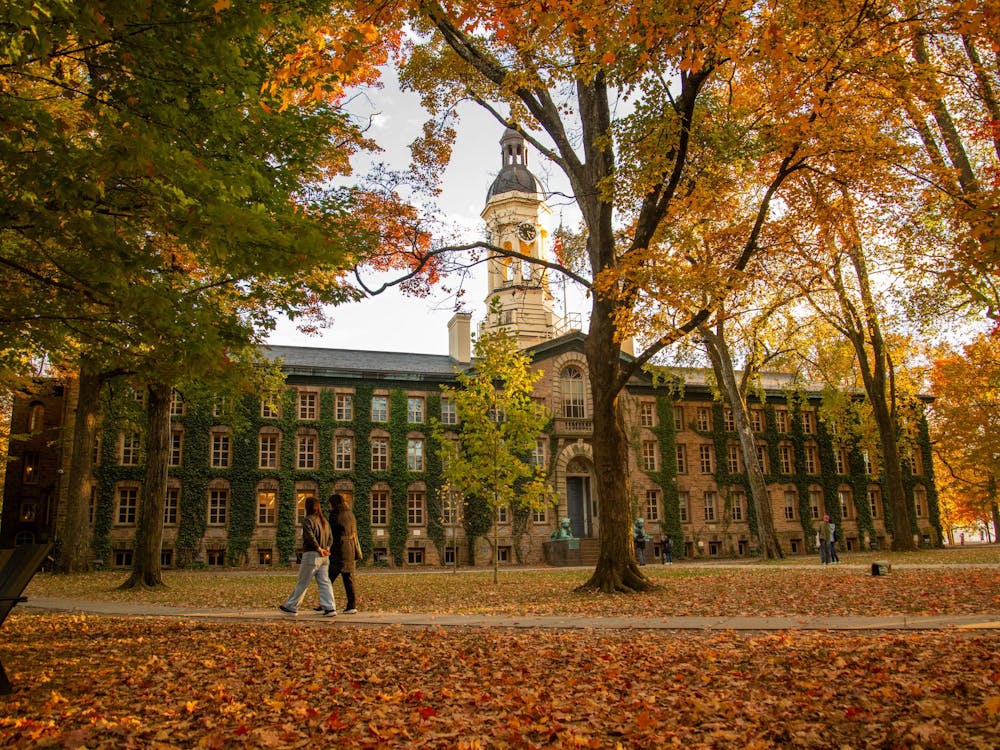Yaroshefsky, currently the USG’s IT Committee chair, defeated USG executive secretary Jack Altman ’11 in a runoff, earning 785 votes to Altman’s 744.
In an interview with The Daily Princetonian, Yaroshefsky said he looks forward to beginning his term and has started identifying some of the challenges he will face and some of the projects he will pursue as president.
“I am absolutely thrilled to have earned the support of so many students, and I am eager to exceed the expectations I set,” Yaroshefsky said in an e-mail. “The results of the runoff election tell me that I still have to earn the confidence of the students who did not vote for me and that the USG should reach out to the 3,600 students who did not vote at all.”
He cited lack of student interest as the USG’s greatest weakness, noting the importance of “effective two-way communication.”
“I am concerned that the decrease in voter turnout compared to last year’s winter election may be an indication that students’ interest in the USG is waning, but I hope to reverse that this year by giving more people an active part — not just a voice — in the USG,” Yaroshefsky explained. “I hope that I can break down barriers by getting more people involved in the USG and by using innovative communication methods such as the Firestone Chats and the USG blog.”
Yaroshefsky will become the first sophomore to serve as USG president since David Calone ’96 was elected in December 1993. Calone went on to serve two terms.
Yaroshefsky said he is excited by the unique opportunity.
“I’d imagine that holding office as a sophomore would be very challenging,” Diemand-Yauman said. “He will need to make a real effort to reach out to upperclassmen and address issues with which he may not be entirely familiar, such as those that are being discussed in the eating club task force.”

None of the 24 points posted on Yaroshefsky’s campaign website address matters concerning the eating clubs, and he has not publicly proposed any projects or changes regarding the clubs.
“The USG should not meddle in the affairs of the eating clubs, but that does not preclude us from cooperating with the Interclub Council and the Eating Club Task Force to improve the experience for all students, regardless of race and family income,” Yaroshefsky explained. And as for his own involvement with the clubs, he said he is “pretty sure” he will join one.
Yaroshefsky said he intends to continue several of the initiatives of the Diemand-Yauman administration, including expanding outside awareness of the University’s grading policy, making alcohol policy more transparent and examining the relationship between the University and the eating clubs.
“We will continue the moderate progress we have already made regarding analysis of grade deflation by tracking down the critical comparative data that have been missing from previous reports,” Yaroshefsky said.

Yaroshefsky added that he will also continue the USG’s efforts to improve its elections system, which recently saw the implementation of the Helios voting system and approval voting.
“This was the smoothest election the USG has had in at least a year, but the minor difficulties along the way indicate that refining elections should be an ongoing project,” he said. “We may wish to take a second look at the penalty point section.”
Yaroshefsky emphasized that his administration will elicit student input and encourage student involvement with the USG. Though one of Yaroshefsky’s platform points was to reduce college spam and streamline e-mail delivery, he said he wants the USG to e-mail the student body often. Unlike his predecessor, who noted in a post to the USG website that “positive change” would come if the USG is run as a “background organization,” Yaroshefsky said he will push for a more publicly active USG.
“I would like to use school-wide e-mails more regularly than Connor did in order to involve more students in either discussions about what the USG is doing or bringing about the changes they want to see happen,” he noted.
Yaroshefsky will also use communication with students to help set the USG’s agenda, he said.
“We will kick off the year by communicating with students about which projects we should prioritize,” he said. “I will immediately begin forming the president’s cabinet, which will be composed of the leaders of student groups, athletics teams and the eating clubs who wish to join. I will rely on this cabinet for ideas, advice and assistance. We will have more details about our specific projects once the entire [USG] Senate has been able to discuss them.”
Moreover, “since the president’s cabinet will be composed of leaders from student groups, athletic teams and eating clubs, many of whom are juniors and seniors, it will be a resource for directly collaborating with upperclassmen,” he added.
Sam Dorison ’11, who becomes USG vice president Feb. 1, said he is looking forward to working with Yaroshefsky.
“I’m excited about the new administration and hope we can accomplish a lot for students over the next 12 months,” Dorison said in an e-mail. “Yaro is an incredibly smart and detail-focused guy. He’ll be an effective leader.”
Diemand-Yauman offered some advice to Yaroshefsky. “Enjoy the position and the work, stay humble, and remember that this is Princeton, and therefore there’s a good chance that many of the people you are representing are smarter than you,” he said. “Also, don’t read the anonymous ‘Prince’ comments.”







